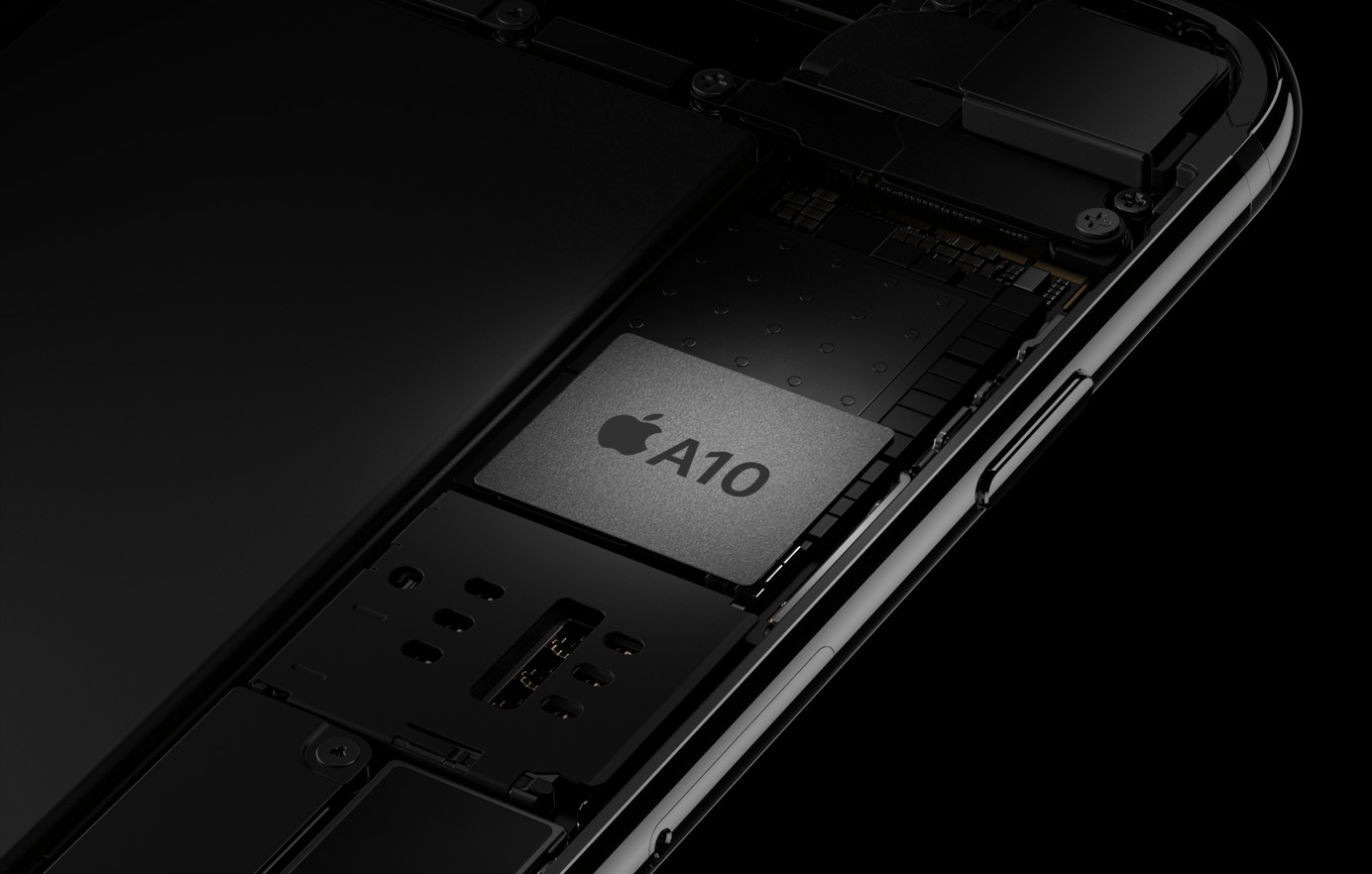Apple is getting a lot of stick for failing to give users a 32GB RAM option onthe latest MacBook Pro — but there’s a good reason why 16GB is the most you can get.
It’s also the reason Apple needs to start designing its own processors for the MacBook family.
For proof, you need look no further than iOS.
Apple chips for iOS
Apple has been designing its own chips for iOS since 2010, and it does an excellent job. The company’s A series processors outpace the competition almost every year — despite typically slower clock speeds and fewer cores — making the iPhone and iPad incredibly snappy.
In Geekbench tests, the latest A10 Fusion chip achieves a single-core score of 3,307 — almost double that of the fastest Android, the Galaxy S7 edge, which achieves 1,786. It also beats the S7 edge in multicore tests with a score of 5,346.
iPhone 7 even outpaces the early 2016 MacBook powered by a 1.3GHz Intel Core m7 chip, which achieves a single-core score of 3,162.
We know Apple can design great chips, then, and by doing so it can tailor those chips to its products. The problem with relying on chip makers like Intel for the Mac is that third-party processors don’t always fit Apple’s own vision.
The new MacBook Pro is a perfect example of that.
Intel chips means less RAM for MacBook Pro
The reason you can’t get it in a 32GB configuration, according to a thread on Reddit, is because Intel’s Skylake processors don’t support 32GB LPDDR4 memory (the LP stands for “low power”). If Apple added 32GB, it would need to sacrifice MacBook Pro battery life — something the company wouldn’t do.
“To put more than 16GB of fast RAM into a notebook design at this time would require a memory system that consumes much more power and wouldn’t be efficient enough for a notebook,” explained Phil Schiller in an email to a customer.
It’s thought Intel’s chips won’t support 32GB of LPDDR4 RAM until 2018, which means next year’s MacBook Pro will likely max out at 16GB of RAM, too.
“Apple simply places a higher priority on thinness and lightness than performance-hungry pro users do,” notes Daring Fireball’s John Gruber. “Apple is more willing to compromise on performance than on thinness and lightness and battery life.”
Apple didn’t have time to make its own MacBook chips
[contextly_auto_sidebar]
This intense focus on ultraportable laptops with long-lasting batteries put Apple in a bad position. Cupertino was basically forced to settle on Intel chips.
There’s just one problem, according to Gruber.
“Intel just doesn’t make the chips that Apple needs,” he wrote. “Intel is designing its chips for an industry that does not share Apple’s obsession with thinness and lightness.”
Apple couldn’t wait for Intel’s chips to catch up because the MacBook Pro was already outdated. Fans were calling out for new models with Intel’s Skylake chips. Delivering new MacBook Pros limited to 16GB of RAM was really the only option Apple had for 2016.
The case for Apple MacBook chips
If Apple wants to deliver the best of both worlds — sleek and slim designs with beefy specifications that offer pro performance — it needs to design its own processors that perfectly fit that vision.
The company probably is already working on solving this problem.
Apple has reportedly been planning to design its own Mac chips for years, and it’s likely just a matter of time before they come to fruition. Until then, it’s either slightly compromised MacBooks or ugly Windows-powered alternatives.


